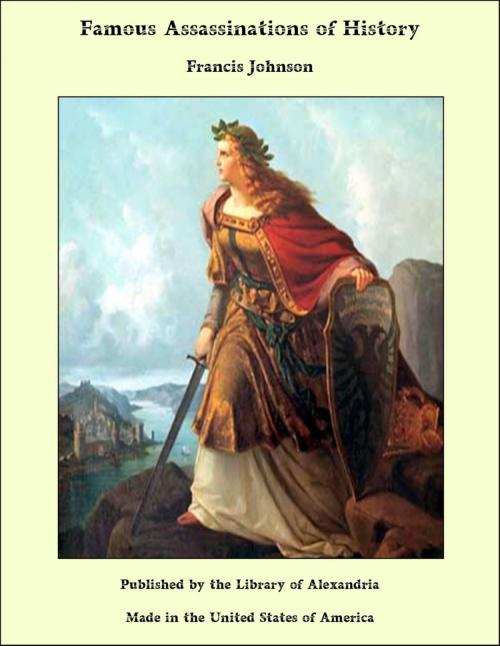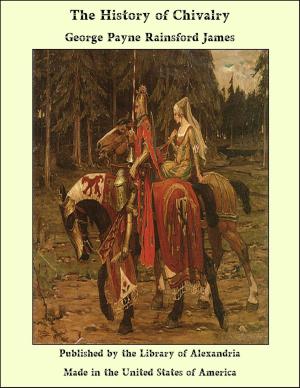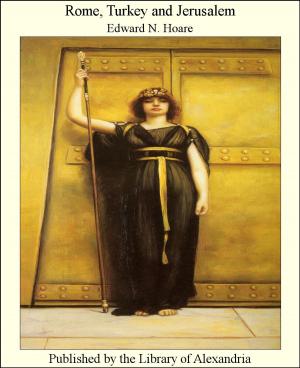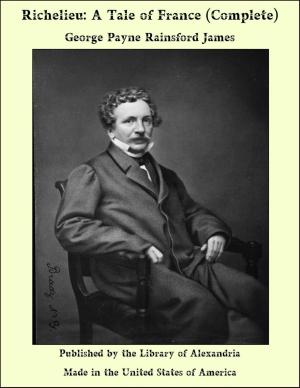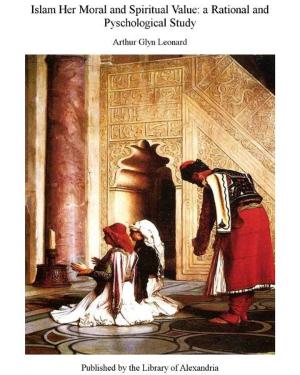Famous Assassinations of History
Nonfiction, Religion & Spirituality, New Age, History, Fiction & Literature| Author: | Francis Johnson | ISBN: | 9781465591586 |
| Publisher: | Library of Alexandria | Publication: | March 8, 2015 |
| Imprint: | Language: | English |
| Author: | Francis Johnson |
| ISBN: | 9781465591586 |
| Publisher: | Library of Alexandria |
| Publication: | March 8, 2015 |
| Imprint: | |
| Language: | English |
THE assassination of Philip of Macedon, which occurred in the year 336 B.C., was one of the most important in ancient history, not only because it terminated the glorious career of one of the most remarkable men of his times, but also because it led immediately to the accession of Alexander, one of the supremely great men of history,—an event which would very likely not have taken place at all if Philip had continued to live for a number of years and had himself selected the successor to his throne. Philip of Macedon was then at the height of his power. The battle of Chæronea, in 338 B.C., had made him the master of Greece; and by his tactful and generous treatment of the vanquished he had even been appointed by the Amphictyon League commander-in-chief of all the Greek forces, which he intended to lead, at the head of his Macedonian army, against the Persians, and to conquer their mighty empire. This stupendous plan, by whose accomplishment Philip would have anticipated the glorious achievements of Alexander, his son, was frustrated by his assassination. While Philip had arranged everything for his descent upon Persia, and had been frequently absent from home, his domestic affairs in his own capital, which had never been of a very satisfactory character, took such an unfavorable turn as to require his personal attention. As a husband, Philip had often given just cause of complaint to Olympias, his royal spouse. Wherever he went he formed liaisons, and several illegitimate children were openly recognized by him as his own. But when Olympias, the Queen, laid herself open to a suspicion of having violated her marriage vows in his absence, he repudiated her, charging her with gross infidelity, and intimating that he had very strong doubts of being the father of Alexander. Olympias thereupon went back to her native state, Epirus, accompanied by Alexander, who was highly incensed at the treatment shown to his mother and himself. Philip contracted a second marriage with Cleopatra, a niece of Attalus, one of his generals; and it is said that at the wedding feast Attalus, half intoxicated, expressed the wish and hope that Cleopatra might give the Macedonians a lawful heir to the kingdom. This remark, overheard by Alexander, so enraged him that, throwing a full cup at Attalus’s head, he shouted to him: “What, you scoundrel! am I then a bastard?” Whereupon Philip, taking Attalus’s part, rose from his seat, and rushing with his drawn sword upon Alexander would have run his son through, if he had not, being himself more than half drunk with wine, slipped and fallen on the floor; at which sight Alexander scornfully said: “See there the man who is making great preparations to invade Asia at the head of a powerful army, and who falls to the ground like a helpless child in going from one seat to another.”
THE assassination of Philip of Macedon, which occurred in the year 336 B.C., was one of the most important in ancient history, not only because it terminated the glorious career of one of the most remarkable men of his times, but also because it led immediately to the accession of Alexander, one of the supremely great men of history,—an event which would very likely not have taken place at all if Philip had continued to live for a number of years and had himself selected the successor to his throne. Philip of Macedon was then at the height of his power. The battle of Chæronea, in 338 B.C., had made him the master of Greece; and by his tactful and generous treatment of the vanquished he had even been appointed by the Amphictyon League commander-in-chief of all the Greek forces, which he intended to lead, at the head of his Macedonian army, against the Persians, and to conquer their mighty empire. This stupendous plan, by whose accomplishment Philip would have anticipated the glorious achievements of Alexander, his son, was frustrated by his assassination. While Philip had arranged everything for his descent upon Persia, and had been frequently absent from home, his domestic affairs in his own capital, which had never been of a very satisfactory character, took such an unfavorable turn as to require his personal attention. As a husband, Philip had often given just cause of complaint to Olympias, his royal spouse. Wherever he went he formed liaisons, and several illegitimate children were openly recognized by him as his own. But when Olympias, the Queen, laid herself open to a suspicion of having violated her marriage vows in his absence, he repudiated her, charging her with gross infidelity, and intimating that he had very strong doubts of being the father of Alexander. Olympias thereupon went back to her native state, Epirus, accompanied by Alexander, who was highly incensed at the treatment shown to his mother and himself. Philip contracted a second marriage with Cleopatra, a niece of Attalus, one of his generals; and it is said that at the wedding feast Attalus, half intoxicated, expressed the wish and hope that Cleopatra might give the Macedonians a lawful heir to the kingdom. This remark, overheard by Alexander, so enraged him that, throwing a full cup at Attalus’s head, he shouted to him: “What, you scoundrel! am I then a bastard?” Whereupon Philip, taking Attalus’s part, rose from his seat, and rushing with his drawn sword upon Alexander would have run his son through, if he had not, being himself more than half drunk with wine, slipped and fallen on the floor; at which sight Alexander scornfully said: “See there the man who is making great preparations to invade Asia at the head of a powerful army, and who falls to the ground like a helpless child in going from one seat to another.”
